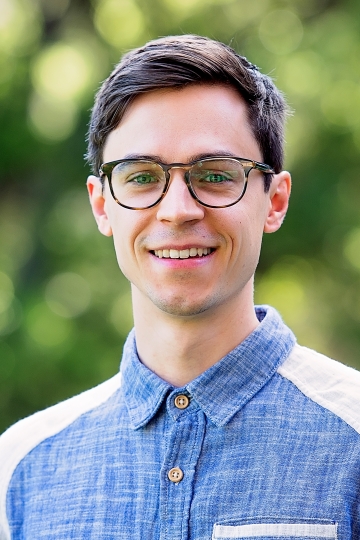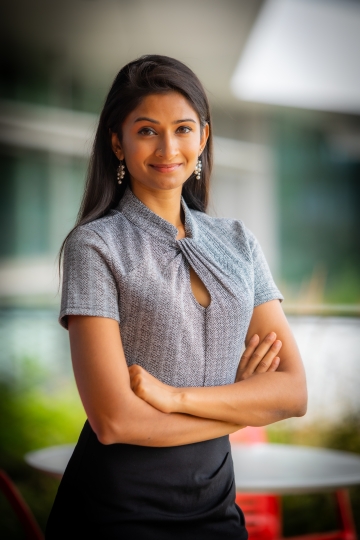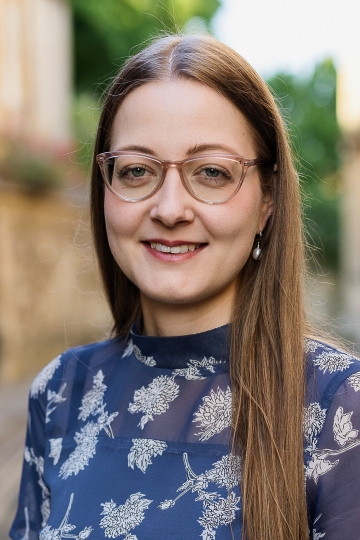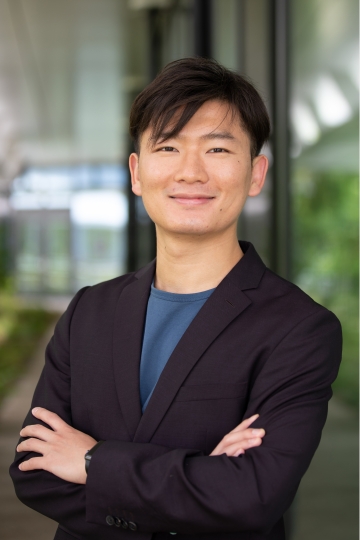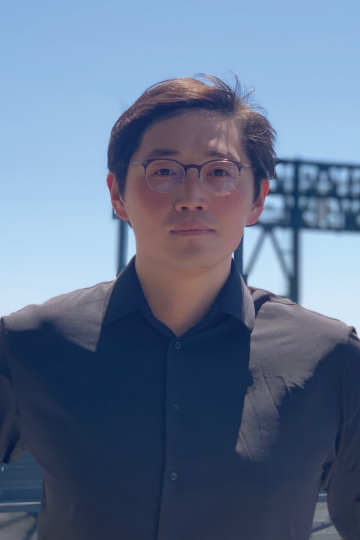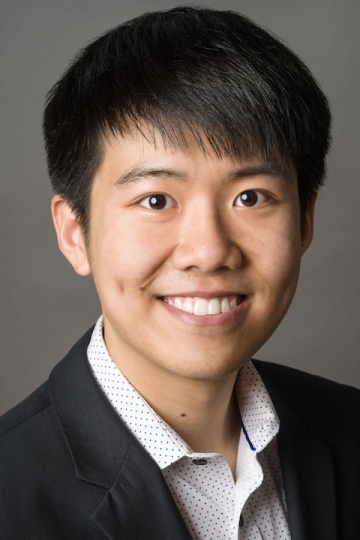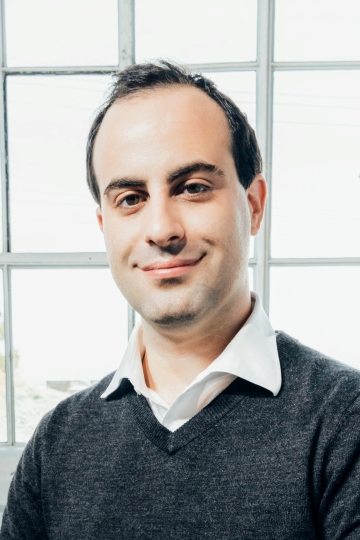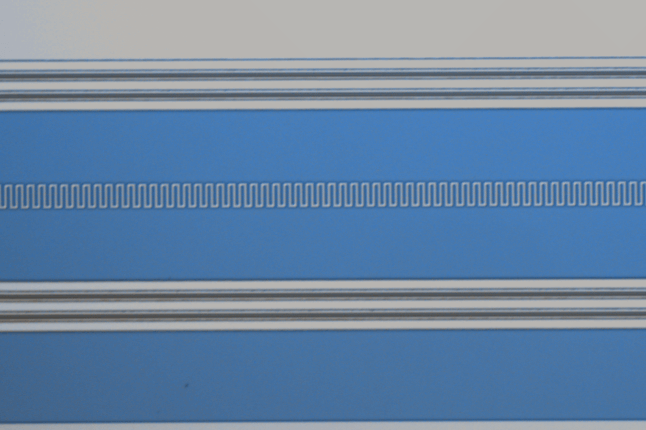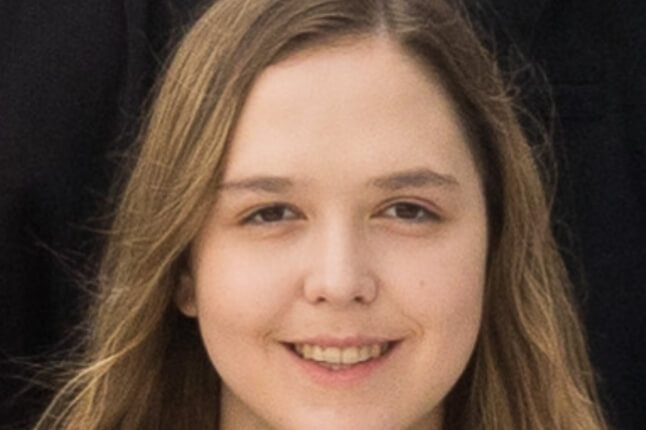News
Ten scientists and engineers will bring expertise in robotics, bioengineering, artificial intelligence, machine learning, and quantum engineering as new faculty members at the Harvard John A. Paulson School of Engineering and Applied Sciences (SEAS).
The new faculty are:
Anna Seigal, Assistant Professor of Applied Mathematics, whose research in multilinear algebra, applied algebraic geometry, and algebraic statistics is focused on finding mathematical abstractions that enable us to better understand information. She is currently a Junior Fellow in Harvard’s Society of Fellows and previously was a Hooke Research Fellow in the Mathematical Institute at the University of Oxford and a Junior Research Fellow at Queen's College. She received her Ph.D. from UC Berkeley, and earned her undergraduate and master’s degrees from Emmanuel College, University of Cambridge.
Giulia Semeghini, Assistant Professor of Applied Physics, is an experimentalist whose research centers on quantum simulation of complex materials and quantum information processing on neutral atom platforms. Semeghini, whose lab will be located in the Harvard Quantum Initiative’s new facility at 60 Oxford Street in Cambridge, received her Ph.D. from the University of Florence, and completed her undergraduate and master’s work at the University of Milan. Since 2019, she has been a postdoctoral researcher in Harvard physicist Prof. Mikhail Lukin’s group.
Patrick Slade, Assistant Professor of Bioengineering, joins a vibrant group of robotics faculty at SEAS, where his research will combine advanced wearable devices, human-centered artificial intelligence, and biomechanics modeling to develop personalized, wearable robotics to monitor, diagnose, and assist people with mobility challenges. He received his Ph.D. and master’s from Stanford. While an undergraduate at the University of Illinois at Urbana-Champaign, Slade spent a summer in SEAS Prof. Conor Walsh’s lab as part of the school’s Research Experience for Undergraduates program.
Shriya Srinivasan, Assistant Professor of Bioengineering, focuses on building biohybrid organs and neuroprosthetics, with the goal of restoring sensation and mobility to patients with neuromuscular dysfunction. She earned her Ph.D. from the Harvard-MIT Program in Health Sciences and Technology and completed her undergraduate degree at Case Western Reserve University. Srinivasan was a Schmidt Science Fellow and is currently a Junior Fellow at the Harvard Society of Fellows.
Melanie Weber, Assistant Professor of Applied Mathematics and Computer Science, explores the interaction of geometry and machine learning to develop better algorithms, especially when data and resources are limited. She received her Ph.D. from Princeton University and her undergraduate degree from the University of Leipzig. Prior to joining Harvard, Weber was a Hooke Research Fellow at the University of Oxford. She has held visiting research appointments at MIT, the Max Planck Institute for Mathematics in the Sciences, as well as the Simons Institute in Berkeley.
Heng (Hank) Yang, Assistant Professor of Electrical Engineering, focuses on robotics, computer vision, optimization, and machine learning, with the goal of creating trustworthy algorithms that can be deployed in real-world, safety-critical robotics applications, such as autonomous driving, automated healthcare, and space robotics. Currently working on enhancing safety assurances for vehicle autonomy as a Research Scientist at NVIDIA Corporation in California, Yang received his Ph.D. and master’s from MIT and completed his undergraduate degree at Tsinghua University.
Kiyoul Yang, Assistant Professor of Electrical Engineering, brings to SEAS a research agenda that seeks to realize integrated photonic systems that can interface with atoms, ions, molecules, and electrons for applications in quantum engineering, computing, spectroscopy, and medical imaging. In this work he will collaborate with theorists and experimentalists in the Harvard Quantum Initiative. Currently a Herbert Walther Fellow in the Max Planck Institute for the Science of Light and a research scientist at Stanford, he received his Ph.D. and master’s from Caltech, as well as master’s and bachelor’s degrees from Korea Advanced Institute of Science & Technology.
As previously announced, three other computer scientists are also joining the SEAS faculty this academic year:
David Alvarez-Melis joins SEAS as Assistant Professor of Computer Science and Applied Mathematics from Microsoft Research New England, where he was a Senior Researcher in the Machine Learning and Statistics group. His research draws on ideas from statistics, optimization, and applied mathematics to make machine learning more trustworthy and more broadly relevant to data-limited applications, particularly those arising in the natural and medical sciences. He received his Ph.D. from MIT, master’s from New York University’s Courant Institute, and bachelor’s from ITAM in Mexico City.
Sitan Chen joins SEAS as Assistant Professor of Computer Science. Working at the intersection of theoretical computer science and machine learning, Chen designs algorithms with provable guarantees for fundamental problems in data science, especially in settings where data might be heterogeneous or contaminated. He received his Ph.D. from MIT and bachelor’s from Harvard.
Jonathan Frankle, Assistant Professor of Computer Science, develops experimental methods for understanding the behavior of neural networks. Frankle, who earned his Ph.D. from MIT, and bachelor’s and master’s from Princeton, is also actively involved in technology policy and spent a year working at the Georgetown University Law Center in this capacity.
Unlike most schools, SEAS has no departments; the new recruits will strengthen and diversify research, teaching, and scholarship in emerging frontiers of knowledge across the highly interdisciplinary program. Some will have offices and labs in Harvard’s Science and Engineering Complex, a state-of-the-art centerpiece of the University’s Allston campus. Others will be based in the school’s historic campus in Cambridge.
“This remarkable group represents an unprecedented infusion of intellectual talent into our program,” said SEAS Dean Frank Doyle. “They already have impressive patent portfolios, have co-founded startups, and have demonstrated genuine commitment to mentoring junior scholars, especially those traditionally underrepresented in science and engineering. The opportunities for these new faculty colleagues to have immediate impact are unlimited”
Topics: Academics, Applied Mathematics, Bioengineering, Computer Science, Quantum Engineering
Cutting-edge science delivered direct to your inbox.
Join the Harvard SEAS mailing list.
Press Contact
Paul Karoff


